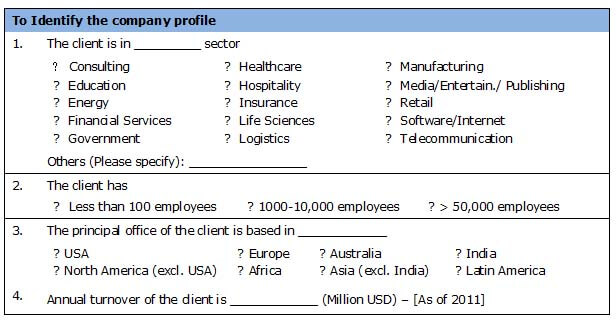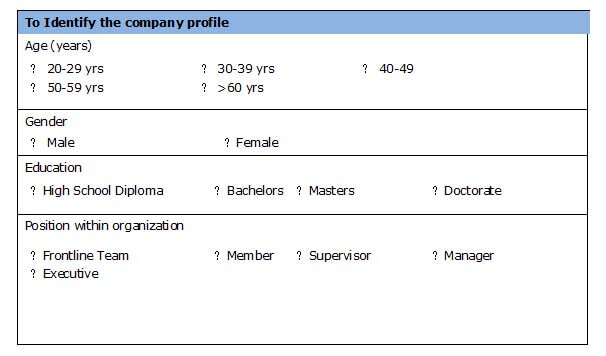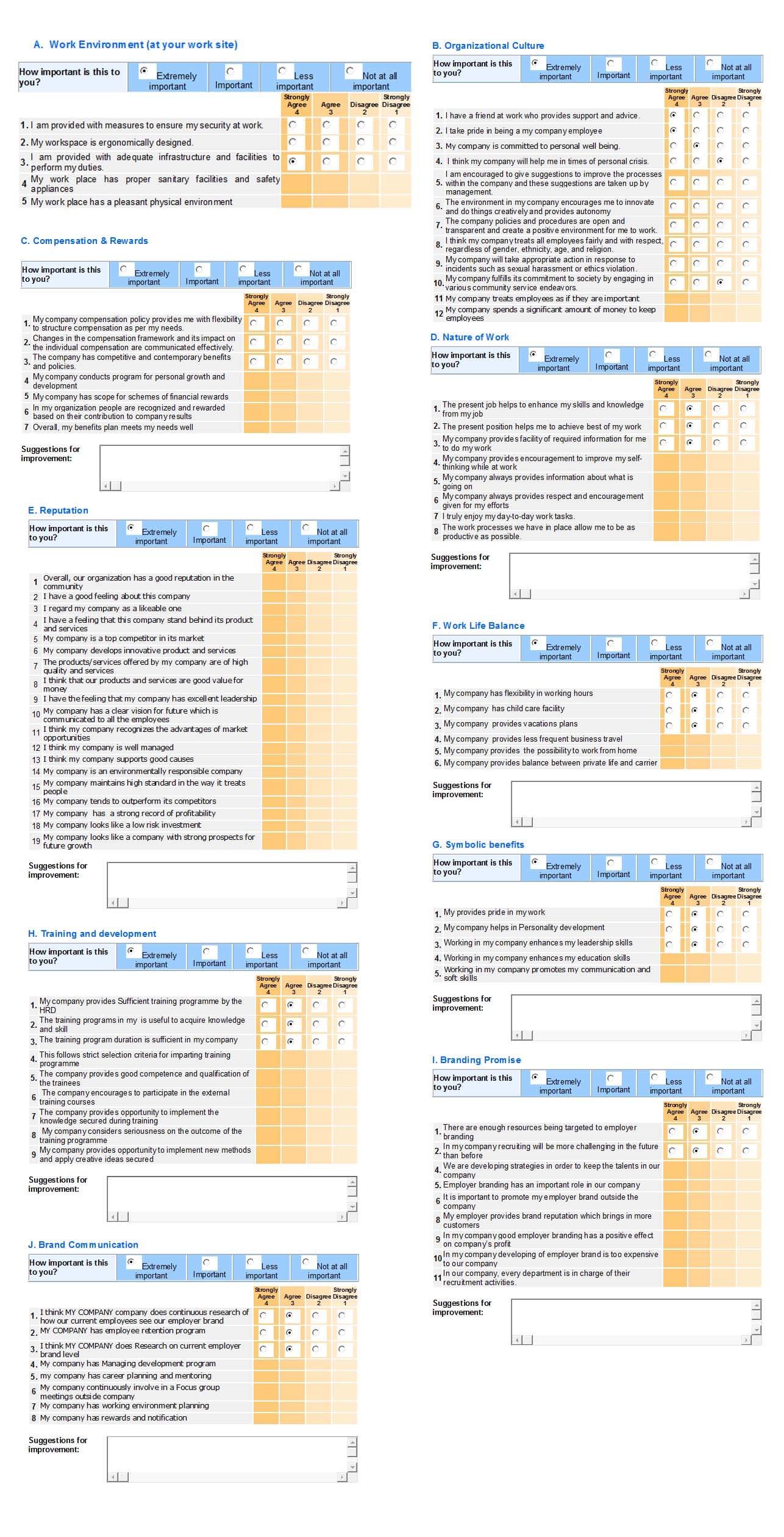Directions: Please to indicate your response. Some statements may be repetitive due to the nature of academic scaling.
Organization Profile



Variables
The Dependent variable in this study was the employee’s total score on the Tweleve item employee engagement scale Gallup Workplace Audit (GWA) . The Independent variables were the ten employer branding elements mentioned above. Control variables: employee’s number of years of service in the company, education, the location of the employee’s office, his or her gender, and supervisory job duties. We selected these controls primarily because each could be related to all of the variables in our conceptual model and confound our findings. Specifically, longer tenured employees may show higher levels of organizational citizenship behavior and higher levels of organizational trust. Older and more educated employees may be less likely to leave the organization and be satisfied with their current position. Type I cutoff was set to .05.
Hypothesis on linkage between EB and EE
Hypothesis 1
There is a direct positive relationship between employer branding and higher level of Employee engagement. Hypothesis 10: There is no significant between employer branding and Employee engagement. Employee engagement will be positively related to (a) Work Environment (H1a), (b) Organizational Culture (H1b) (c) Compensation Rewards (H1c) (d) Nature of Work (H1d) (e) Inspirational Value (Reputation) (H1e) (f) work life balance (H1f), (g) Symbolic Benefits (H1g), (h) Training & Development. (H1h), (i) Brand Promise (H1i), (i) Brand Communication (H1j).
Hypothesis On EB
Impact of internal employee statement on attracting potential employee is significant with respect to employer produced propaganda. External advertising on the brand promise has significant impact to attract potential employees. Compensation, Career Progression, Nature of Work has significant impact on Employer Branding.
Hypothesis on importance of reputation on employer branding
Hypothesis 2: There is a direct positive relationship between aspects of employer branding and work life balance.
Hypothesis 20: There is no significant relationship between employer branding and work life balance.
H2a: Employee work environment will impact their work life balance
H2b: Employee nature of work will impact their work life balance
H2c: Organizational culture of the company will impact employee work life balance.
Hypothesis on impact of reputation on employer branding:
Hypothesis 3: There is a direct positive relationship between aspects of employer branding and reputation.
Hypothesis 30: There is no significant relationship between employer branding and reputation.
H3a: The reputation of company has a positive relationship on brand promise.
H3b: The reputation of company has a positive relationship on brand communication.


